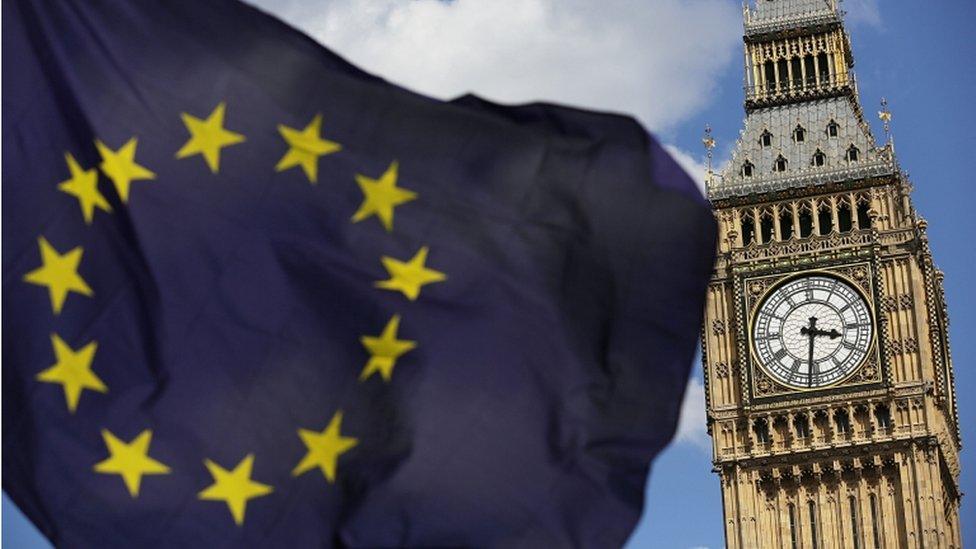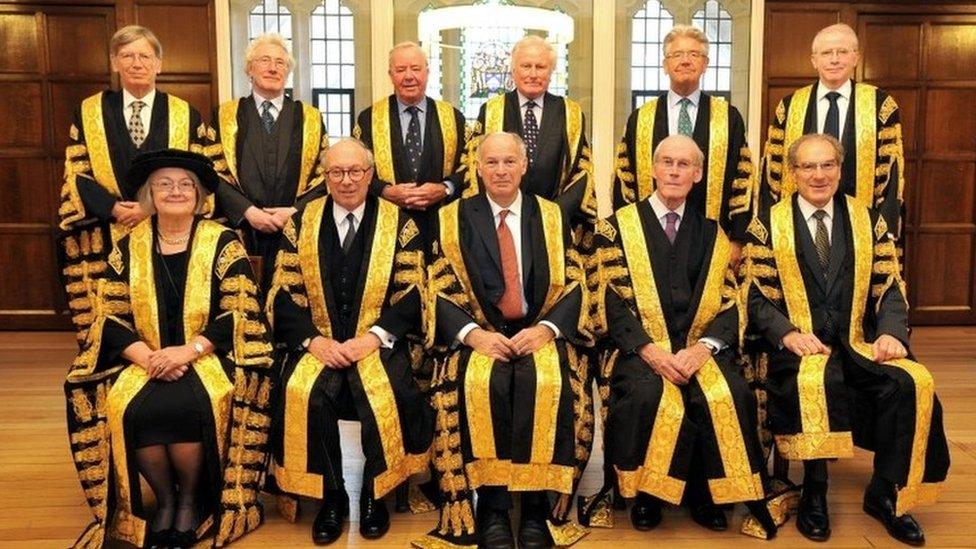Article 50 would 'change devolution', Welsh Government says
- Published

Triggering Article 50 would "significantly change" the devolution settlement as it applies to Wales, the Welsh Government has claimed.
The UK government is appealing against a High Court ruling that Theresa May must consult Parliament over the process to leave the European Union.
The Welsh Government has now set out its objections to the Supreme Court.
Counsel General Mick Antoniw said a "constitutional principle" is at stake.
The UK government claims the prime minister can invoke Article 50 of the Lisbon Treaty to launch the formal two-year process of leaving the European Union using crown prerogative.
But Welsh ministers have objected, claiming the same method could be used to undermine devolution unless the appeal fails.
In its submission to the Supreme Court ahead of the hearing next month, external, the Welsh Government claims that a large number of its devolved functions derive from EU law and will "therefore be lost upon the UK's withdrawal from the EU Treaties".

The Welsh Government's top legal advisor Mr Antoniw set out two main reasons why Theresa May cannot use so-called "prerogative powers" to begin the process without the consent of Parliament.
The Pontypridd AM says the two-year process of withdrawing from the EU would "modify the competence of the National Assembly for Wales and the Welsh Government" is such a way that requires the approval of MPs.
He also said the UK government would have to "short-circuit" a convention whereby ministers in Westminster may not legislate for devolved matters without the consent of the devolved legislature.
In their verdict last month, three High Court judges ruled that triggering Article 50 would fundamentally change UK people's rights - and the government cannot change or do away with rights under UK law unless Parliament gives it authority to do so.
In his case, Mick Antoniw goes a step further by arguing that the powers transferred from Parliament to the assembly use "primary legislation" which cannot be altered without the permission of MPs.
"The constitutional principle at stake is wider and does not permit the prerogative to dispense with primary legislation," he says.
"It is not confined to legislation that affects individual rights. It operates to prevent the prerogative from being used so as to have the effect of altering the competence of the Welsh Assembly and Welsh ministers."
In its submission to the Supreme Court, external the UK Government says: "Under the UK's constitution, it is for the Government to exercise prerogative powers to conduct the UK's affairs on the international plane. That is a vital part of the conduct of modern inter-state business and is entirely consistent with the sovereignty of Parliament".
A UK government spokesman said: "We have received the arguments set out by the Scottish and Welsh governments and will set out our arguments in due course.
"It would not be appropriate to comment further before then."
- Published18 November 2016

- Published4 November 2016

- Published7 November 2016

- Published27 November 2016
